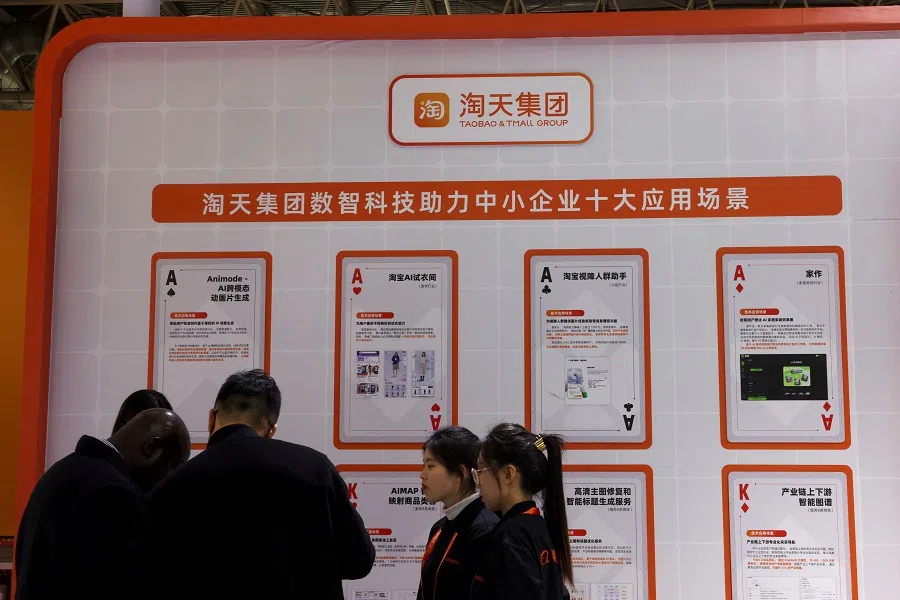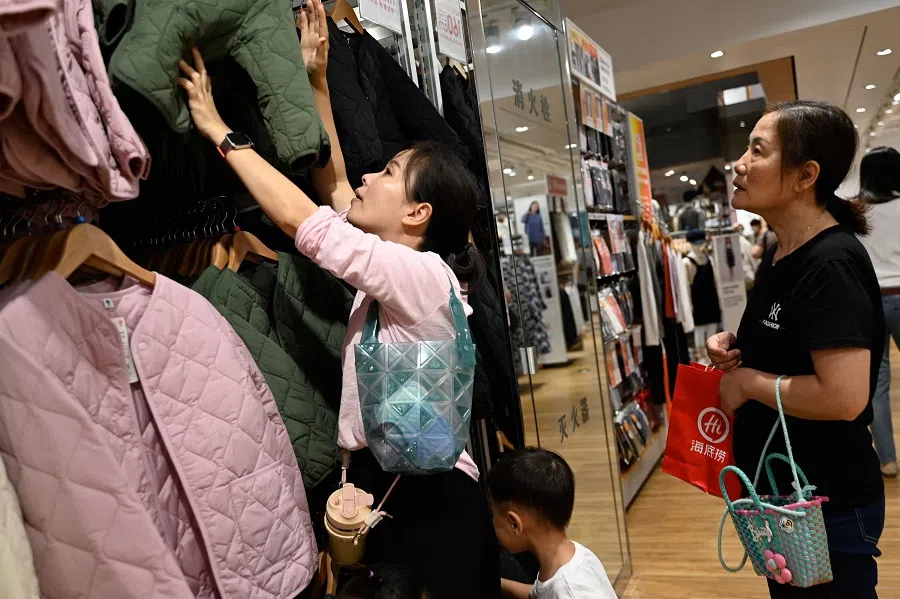Pinduoduo's popularity a sign of Chinese consumption downgrading wave
Popular Chinese online shopping app Pinduoduo has done well in terms of profits, outdoing competitors such as Alibaba and JD.com. While a major factor is due to revenue from Pinduoduo's multinational e-commerce platform Temu, it may also be a sign that consumers in China are changing their spending habits and going for cost-effectiveness and value for money.

Two years ago when I first came to Beijing for work, friends highly recommended Pinduoduo to me. You can get a woman's tank top for less than 10 RMB (US$1.40), a portable charger for a little over that, and smartphones and other electronic goods at rates lower than the average market price. The unbelievably low prices made me doubtful about the quality of the products, so even though I downloaded the app ages ago, I never once made a purchase on the platform.
Clearly, I am behind the times; Pinduoduo's popularity has risen beyond my imagination.
On 28 November, Pinduoduo released their financial report, which showed that in Q3 2023, their total revenue hit a record 68.8 billion RMB, a year-on-year increase of 93.9%.
Pinduoduo's stellar performance stands in stark contrast with Taobao's and JD.com's weak Singles' Day growth in sales figures. Pinduoduo's stock prices also surged - when the US stock market closed on 30 November, Pinduoduo's shares were up by 4.03%, at US$147.44. Pinduoduo's market value at US$195.9 billion puts it above Alibaba, as the leading China concept stock on the US market.
Strong performance by Pinduoduo
The fast-growing Pinduoduo is already threatening Alibaba's hold as the industry leader in China's e-commerce sector. Just this week, Morgan Stanley cut its rating on Alibaba's American depositary receipts to equal-weight from overweight, lowering its price target to US$90 from US$110, in the first downgrade on the company's US-listed shares since late June.
... many people feel Pinduoduo's sudden rise reflects the post-pandemic decline in consumerism in the Chinese market.

In terms of size, Pinduoduo only has around 13,000 employees; Alibaba and JD.com have 18 times and 35 times that number. In terms of company history, Pinduoduo was set up just eight years ago, a far cry from Alibaba and JD, which were both founded in 1990.
Pinduoduo's overtaking of the two has sparked a lot of talk in China, not just about Pinduoduo's miraculous commercial success, but the reasons behind its rise. One major factor in Pinduoduo's jump in profits is due to its multinational e-commerce platform Temu. However, many people feel Pinduoduo's sudden rise reflects the post-pandemic decline in consumerism in the Chinese market.
Shift in consumer habits in China
In November, China's National Bureau of Statistics released data which showed that though total retail sales of consumer goods in October grew higher than predicted year-on-year, this was mainly due to the low base of comparison from last year. Affected by weak sentiment in the property market, recovery remains sluggish in consumption of household products such as furniture and home decor. China's Consumer-Price Index (CPI) for October dropped 0.2% year-on-year, back into negative growth after two months, highlighting the challenges that Chinese officials face in their efforts to spur domestic demand.
Consumer surveys by French, American and Chinese organisations also highlight the slow recovery of China's consumer market. A survey by American business intelligence company Morning Consult found that China's consumer sentiment index fell below 150 in October for the first time since February.
Also, Cheung Kong Graduate School of Business' monthly business conditions index registered 49.8 in October 2023, down slightly from September's figure of 49.9, and remaining under the confidence margin of 50.0.

China's consumption downgrading wave is not only reflected in e-commerce platforms; some offline consumption trends also indirectly reflect more cautious spending among the people.
With the prices of some domestic down jackets soaring to thousands of RMB, a jundayi (军大衣, lit. a big military overcoat) craze emerged in winter this year, as some younger consumers turned to military overcoats that cost just hundreds or even tens of RMB to keep them warm throughout winter. In the middle of the year, middle-class consumers buying discounted food and F&B caterers selling leftover food "blind boxes" also triggered widespread discussion.
Having consumption downgrading and upgrading side by side reflects a certain degree of consumer polarisation in the Chinese market.
Post-pandemic rebound
The Chinese Communist Party's 20th Party Congress report clearly stated that efforts would be made to expand domestic demand: "We will work to expand domestic demand and better leverage the fundamental role of consumption in stimulating economic growth and the key role of investment in improving the supply structure." Last December, the Central Economic Work Conference also indicated the need to prioritise the recovery and expansion of consumption, further stressing the importance of consumption rebound to China's economic recovery.
In this context, signs of consumer downgrading have attracted attention outside of China, and has also become a more sensitive issue within China. Notably, the wave of consumption downgrading in China does not mean that the country is turning into a "low-desire society" (低欲望社会), meaning a society with few wants; a more complex change is taking place in the consumption habits of the Chinese.

Even as consumption downgrading has emerged in some Chinese regions, China's luxury brands are also seeing a strong post-pandemic rebound, especially in the first half of the year, when luxury spending bounced back even faster than the country's overall economy. China also witnessed a "gold rush" over the past two years, with gold consumption in the first quarter of this year hitting 291 tonnes, a 12.03% increase compared to the same period in 2022 and over half of the total consumption in the previous year. And it is not only the high-income consumers who are buying gold, but middle-class youths as well.
More people are choosing to save small amounts on daily expenses, and are more concerned with value retention when making big purchases.
Having consumption downgrading and upgrading side by side reflects a certain degree of consumer polarisation in the Chinese market. Following the emergence of the jundayi craze, an online phrase that encapsulated this consumer polarisation phenomenon became viral on social media: not that I can't afford it, but dupes are simply more value for money.
So it is not that Chinese consumers are not spending; they have just become more cautious and focused on value for money. More people are choosing to save small amounts on daily expenses, and are more concerned with value retention when making big purchases. This new trend tests the adaptability of large and small enterprises alike, as e-commerce giants as well as shopping malls and restaurants have to accurately grasp the pulse of consumers to stay in the game.
This article was first published in Lianhe Zaobao as "从拼多多到军大衣".





